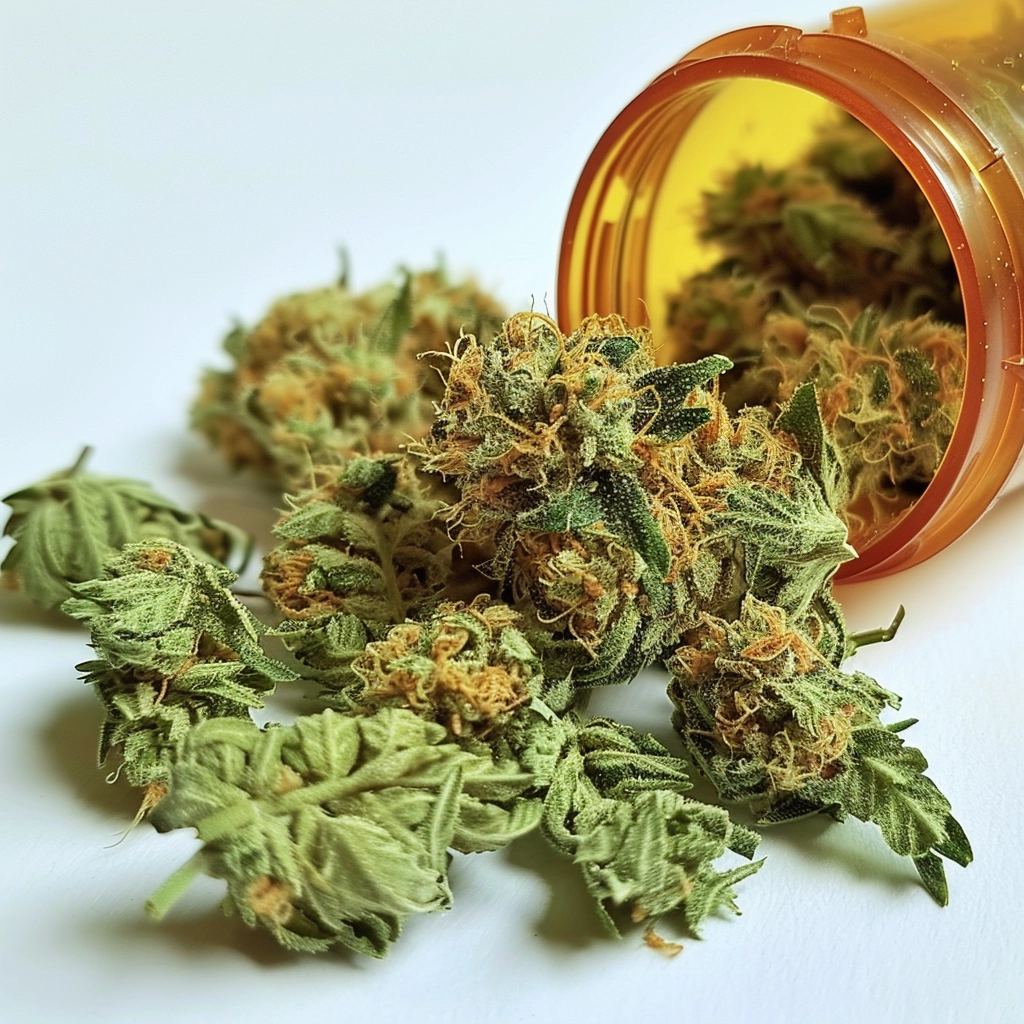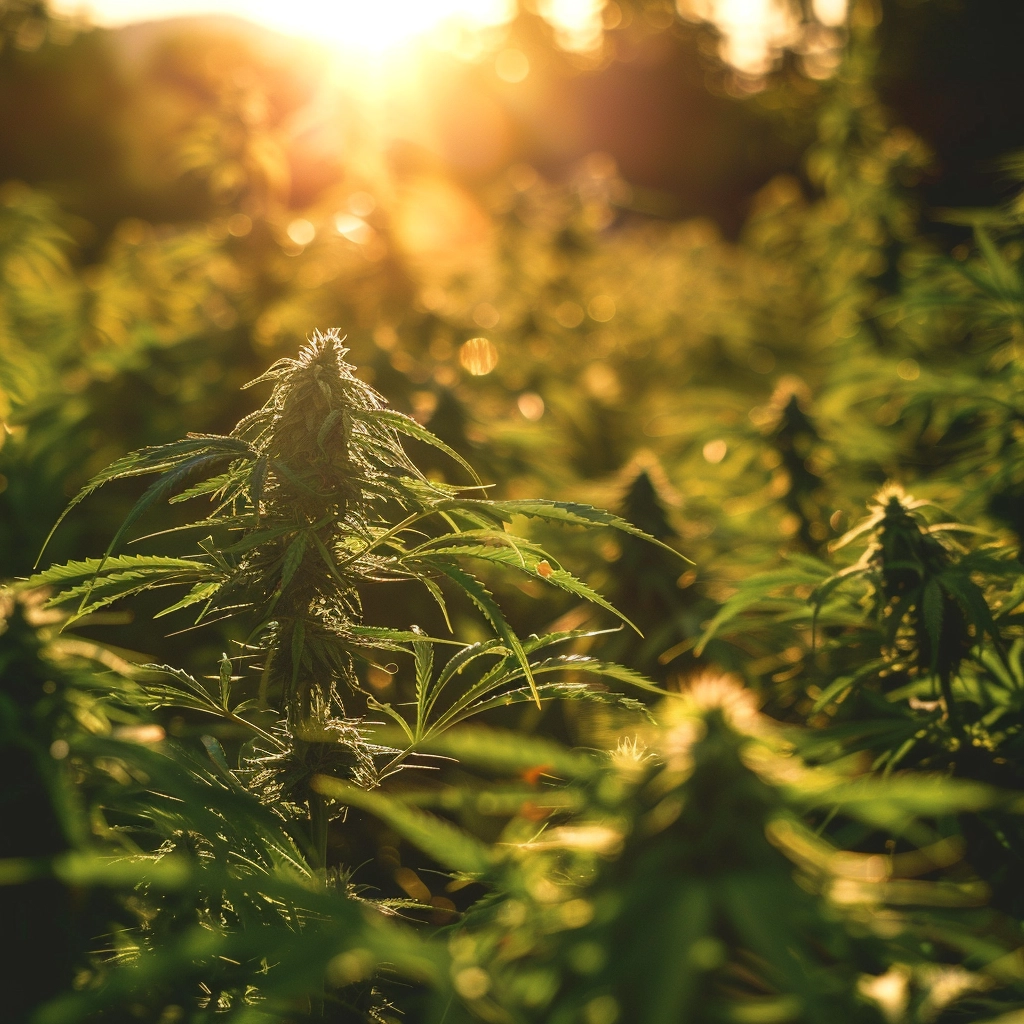In the shadow of the opioid crisis that has swept across nations, leaving a trail of addiction and loss in its wake, a beacon of hope emerges from an ancient plant: cannabis. This botanical marvel, once ensnared in controversy, is now at the forefront of a paradigm shift in pain management and treatment of chronic conditions. As the medical community and patients alike search for safer alternatives to opioids, medical cannabis presents a compelling case, offering not just relief but a potential path to a future where dependency and overdose are no longer haunting specters.


Table of Contents
ToggleThe Opioid Crisis: A Call for Alternatives
The opioid epidemic has underscored a dire need for effective pain management solutions that carry a lower risk of addiction and overdose. Opioids, while effective for acute and severe pain, come with significant downsides, including high potential for dependence and a myriad of adverse effects. In this context, the exploration of medical cannabis as an alternative is not just warranted but imperative.
Understanding Cannabis's Mechanism of Action
At the heart of medical cannabis’s potential as an opioid alternative is its complex interaction with the body’s endocannabinoid system (ECS), a pivotal player in regulating pain, mood, appetite, and sleep. Unlike opioids that target the central nervous system to produce pain-relieving effects—often with diminishing returns and increased risks—cannabinoids in cannabis, such as THC and CBD, engage the ECS to modulate pain and inflammation more holistically and with fewer side effects.
Evidence Supporting Cannabis in Pain Management
A growing body of research illuminates cannabis’s role in pain relief, with studies showing promising results in reducing chronic pain, neuropathic pain, and even helping to alleviate the symptoms of conditions like multiple sclerosis and arthritis. Unlike opioids, cannabis does not carry the same risk of fatal overdose, offering a safer profile for long-term use in managing chronic pain.


Cannabis: Bridging the Gap in Chronic Pain Treatment
For many patients, the journey with chronic pain is fraught with trials of various medications, often culminating in the use of opioids with their associated risks. Cannabis offers a bridge to a different kind of treatment, one that is not only effective but also emphasizes the patient’s quality of life and well-being.
The Role of THC and CBD
THC and CBD, the two most studied cannabinoids, play distinct roles in pain management. THC, known for its psychoactive effects, also possesses analgesic properties that can significantly reduce pain perception. CBD, on the other hand, is non-psychoactive and has been shown to have anti-inflammatory, analgesic, and anxiolytic effects, making it particularly appealing for chronic pain sufferers seeking relief without the high associated with THC.
Personalized Medicine and Cannabis
One of the most compelling aspects of medical cannabis is its capacity for personalization. With a wide array of strains, concentrations, and delivery methods, treatment can be tailored to the individual’s specific needs and preferences, optimizing efficacy while minimizing side effects. This personalized approach stands in stark contrast to the one-size-fits-all nature of traditional opioid prescriptions.


Navigating Challenges and Moving Forward
Despite the promising potential of cannabis as an alternative to opioids, challenges remain. Legal and regulatory barriers, variability in cannabis quality and potency, and a need for more comprehensive clinical research are among the hurdles to be overcome. However, as societal attitudes shift and scientific understanding deepens, the integration of cannabis into pain management protocols becomes increasingly feasible.
A Call for Advocacy, Education, and Research
Advancing the role of cannabis in pain management requires concerted efforts in advocacy, patient and healthcare provider education, and continued clinical research. By fostering an environment where cannabis is understood, respected, and appropriately utilized, we can pave the way for its acceptance as a legitimate and valuable component of pain treatment.
Conclusion: A Future Aligned with Nature
As we stand at the crossroads of a healthcare crisis and a natural solution, the path forward is clear. Embracing medical cannabis as an alternative to opioids is not merely a choice but a necessity for a future where pain management is safe, effective, and aligned with the body’s natural mechanisms. In this green horizon, hope grows not from the ashes of crisis but from the soil of innovation, compassion, and an unwavering belief in the healing power of nature.
FAQ: Cannabis as an Alternative to Opioids
What makes cannabis a viable alternative to opioids for pain management?
Cannabis is considered a viable alternative to opioids due to its ability to modulate pain through the endocannabinoid system without the high risk of dependency or fatal overdose associated with opioids. Its diverse cannabinoids, particularly THC and CBD, offer analgesic and anti-inflammatory effects, providing relief for various types of pain with a safer side effect profile.
How does cannabis interact with the body to provide pain relief?
Cannabis interacts with the body’s endocannabinoid system (ECS), a widespread network of receptors that regulate pain, mood, appetite, and sleep. Cannabinoids like THC and CBD can influence this system, reducing pain perception and inflammation, and enhancing mood and sleep, which are crucial for comprehensive pain management.
Are there scientific studies that support the use of cannabis over opioids?
Yes, there are multiple studies and reviews suggesting that cannabis can be effective in managing chronic pain, neuropathic pain, and conditions such as multiple sclerosis and arthritis. Research has also indicated that states with legal medical cannabis have observed decreases in opioid prescriptions and opioid-related overdose deaths, pointing towards its potential as an opioid alternative.
Can cannabis completely replace opioids in pain management?
While cannabis offers significant promise as part of pain management strategies, whether it can completely replace opioids depends on the individual’s condition, pain severity, and response to treatment. For some patients, cannabis may serve as an effective substitute or a complementary therapy that allows for lower opioid dosages.
What are the risks of using cannabis for pain management?
Though generally considered safer than opioids, cannabis use does carry potential risks, including psychoactive effects (primarily from THC), short-term memory impairment, and possible mental health impacts in predisposed individuals. It’s essential to consult with healthcare providers to weigh the benefits and risks based on personal health conditions and history.
How do THC and CBD differ in their effects on pain?
THC (tetrahydrocannabinol) and CBD (cannabidiol) are the two primary cannabinoids in cannabis with different effects on pain. THC is psychoactive and directly activates CB1 receptors in the brain to provide pain relief, while CBD is non-psychoactive and works indirectly to enhance the body’s natural pain management mechanisms, including reducing inflammation.
Can everyone use cannabis as an alternative to opioids?
Cannabis may not be suitable for everyone. Its appropriateness as an alternative to opioids depends on individual factors like the specific pain condition, any underlying health issues, and personal reactions to cannabis. A healthcare provider’s guidance is crucial in determining if cannabis is a suitable option for an individual’s pain management plan.
How can patients start using cannabis for pain management?
Patients interested in using cannabis for pain management should begin by consulting with a healthcare provider knowledgeable about cannabis medicine. This consultation can help determine the suitability of cannabis for their condition, recommend appropriate dosages and forms (e.g., oils, edibles, or inhalants), and provide monitoring for efficacy and side effects.
What are the legal considerations for using medical cannabis?
Legal considerations for medical cannabis vary by country and within countries, by state or region. In places where medical cannabis is legal, patients typically need a prescription or medical cannabis card to purchase cannabis products from licensed dispensaries. Always check local laws and regulations before pursuing medical cannabis as a treatment option.
Understanding cannabis as an alternative to opioids for pain management involves recognizing its therapeutic potential, the nuances of its interaction with the body, and the broader implications for addressing the opioid crisis. As research progresses and societal acceptance grows, cannabis continues to promise a safer, more holistic approach to pain relief and management.
Kannabu's Online Cannabis Educational Resources
Read Educational Online Guides and Articles to Learn About Cannabis
- Navigating the Green Path: CBD vs. THC in Medical Treatment
- The Aromatic Architects of Healing: The Role of Terpenes in Medical Cannabis
- Navigating the Green Frontier: Clinical Trials on Cannabis and Its Effects
- Charting the Green Path: Cannabis Dosing Guidelines for Medical Use
- The Endocannabinoid System: Nature’s Balancing Act in Human Health
- A Green Horizon: Cannabis as an Alternative to Opioids
- Navigating the Mind’s Garden: Cannabis and Mental Health Treatment
- Unlocking the Green Code: Exploring the Genetic Diversity and Pharmacological Promise of Cannabis
- Weaving Green into Gold: The Integration of Medical Cannabis into Traditional Medicine
- The Therapeutic Promise of Medical Cannabis: Exploring the Spectrum of Cannabinoids
- From Young to Old: The Compassionate Embrace of Medical Cannabis in Pediatric and Geriatric Care
- Green vs. Traditional: Navigating the Crossroads of Medical Cannabis and Conventional Therapies
- Beyond the Pain: The Comparative Effectiveness of Cannabis in Chronic Pain Management
- Unlocking Cannabis’s Secrets: The Journey Through Cannabinoid Pharmacokinetics and Pharmacodynamics
- Green Paws: Navigating the Frontier of Medical Cannabis in Veterinary Care
- Unlocking Relief: The Transformative Role of Medical Cannabis in Pain Management

